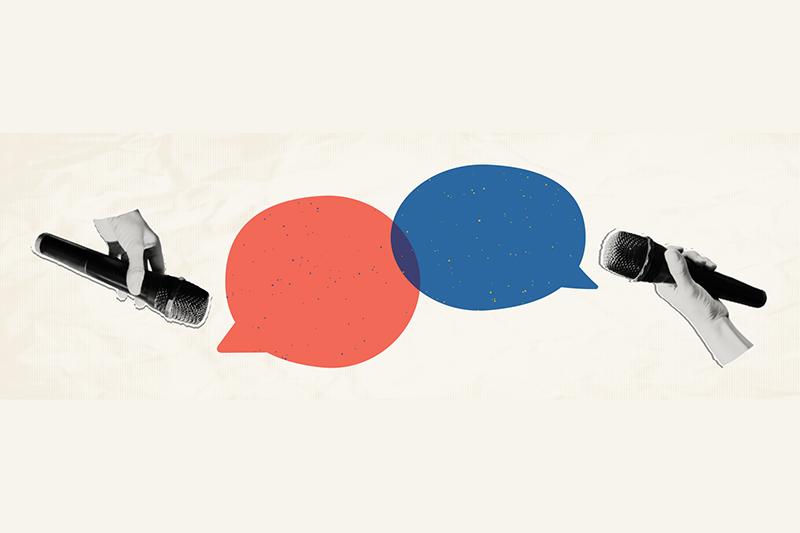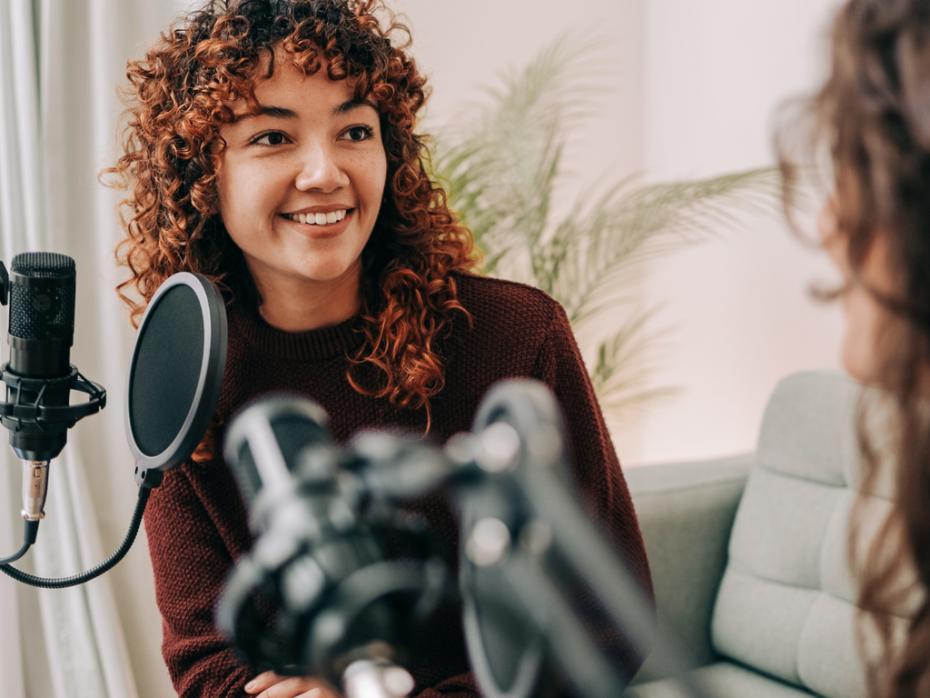The idea to launch an academic podcast began with a problem. It’s increasingly clear to many people that democracy is malfunctioning – not least with the rise of populism and democracy’s failure to get to grips with the climate crisis. But important conversations in academia and NGOs about how to improve democracy aren’t getting the attention they deserve. How, we asked ourselves, can we insert these urgent insights into wider public debate?
We settled on a podcast as a good medium to help these conversations travel further. Democracy: Differently is produced by academics, interviewing other academics, and in future series we plan to branch out beyond academia. But it’s for everyone. Practitioners, policymakers, students, anyone curious about why democracy isn’t working and what we can do about it.
We released the first episode on 4 July and, to our astonishment, it had immediate impact; the podcast shot to number 22 in the Apple politics podcast rankings, and The Guardian newspaper named it among their podcasts of the week. Hopefully, that’s a good sign that there’s a big public appetite for these ideas.
- Five things to know before you launch a research podcast
- Podcast starter kit: what you need to get recording and posting now
- Spotlight guide: The practicalities of co-creation with students
For the first series of eight fortnightly episodes, we’ve interviewed colleagues around the world to dive deep into their work. Some of our guests have told us how refreshing it is to be able to talk in depth in a way that is free from the more formal and jargon-heavy setting of an academic conference.
Our ambition for the podcast is to help these important ideas step further, out of the conference halls and journals and into everyday discussions. Some of our guests already do a lot of outreach and impact work outside academia but for others, the podcast has provided a new medium to share their work with the public in a timely, conversational way, and an opportunity to impact wider debate. Topics have included deliberative democracy, democratic short-termism and democratic culture. We enjoy thinking together with our interviewees about how to make these ideas accessible and engaging for our new audiences.
Student co-creation in developing an academic podcast
We’ve enjoyed building a team to develop the podcast. We, Keith and Jess, are university politics researchers at different career stages, but from the outset we’ve sought to involve students in the team. Dan White is a PhD student in philosophy, Jagritee Senapati is a master’s student in public policy, and Woody Pal is an undergraduate in policy. They have helped shape and deliver the show in every way, from researching guests to handling social media and editing episodes. Their enthusiasm to make a difference (and to bring technical know-how that we don’t have) has helped make the podcast what it is.
When we factor in researching guests, writing questions, recording, editing, scheduling and promoting the podcast on social media, each episode easily adds up to more than a full day’s work between us. Juggling this alongside the demands of teaching, research, admin and an ever-growing to-do list can be a challenge. Having a team of students to support the production, especially on the editing and social media side, has been a great help. But we’ve also had to develop tactics to make the process as efficient as possible. For example, we sometimes schedule recordings with colleagues on the sidelines of conferences so we don’t have to set up separate meetings. We also try to take advantage of quieter periods in the academic year to film lots of episodes in advance so that we always have a buffer supply of recordings to see us through busier times of year.
We asked the students on the team, Dan, Jagritee and Woody, to say something about the impact the podcast has had on them and this is what they told us:
Dan White: “As a PhD researcher and aspiring academic, working on the Democracy: Differently podcast has given me a completely new way to engage with what can often be quite dense literature. Making academic ideas accessible to a broader audience – not just other academics – is a really worthwhile skill. Most of all, as a political theorist, it’s refreshing to bring abstract concepts into conversation with the real world, and I’m genuinely curious to see where that leads.”
Jagritee Senapati: “Overseeing the communications for Democracy: Differently has opened up new possibilities for my career. This podcast not only asks the right questions but attempts to give plausible answers. To be a part of such an important cause has made me aware of my own democratic capabilities (personally) as a global student.”
Woody Pal: “As an undergraduate student, I’ve learned a lot from taking on such a significant level of responsibility as the video editor on the team, as well as working alongside much more experienced and knowledgeable academics. I’m grateful to be a part of this project, and I’m proud of the work that’s come out of it.”
‘Build a team to support different aspects of production’
Starting a podcast is certainly hard work. Democracy: Differently was over a year in the making, with plenty of other commitments to get in the way. But it’s also been incredibly rewarding to see how a different sort of academic adventure can engage people beyond academia in critical conversations about the future of democracy. For us, the podcast has now become part of our academic lives, and we regularly schedule time to work on supporting its growth.
If you’re thinking about starting your own academic podcast, we would say: “Go for it!” Don’t be afraid to ask colleagues for advice and, if you can, build a team to help support the different aspects of podcast production, editing and publicity. It takes time, but from our point of view that’s time well spent – an opportunity to join the dots between important academic research and public understanding.
Jessica Sutherland is research fellow in politics and international studies and Keith Hyams is professor of political theory and ethics, both at the University of Warwick. Together, they host the Democracy: Differently podcast. The team also includes Dan White, Jagritee Senapati and Woody Pal.
If you would like advice and insight from academics and university staff delivered direct to your inbox each week, sign up for the Campus newsletter.




comment